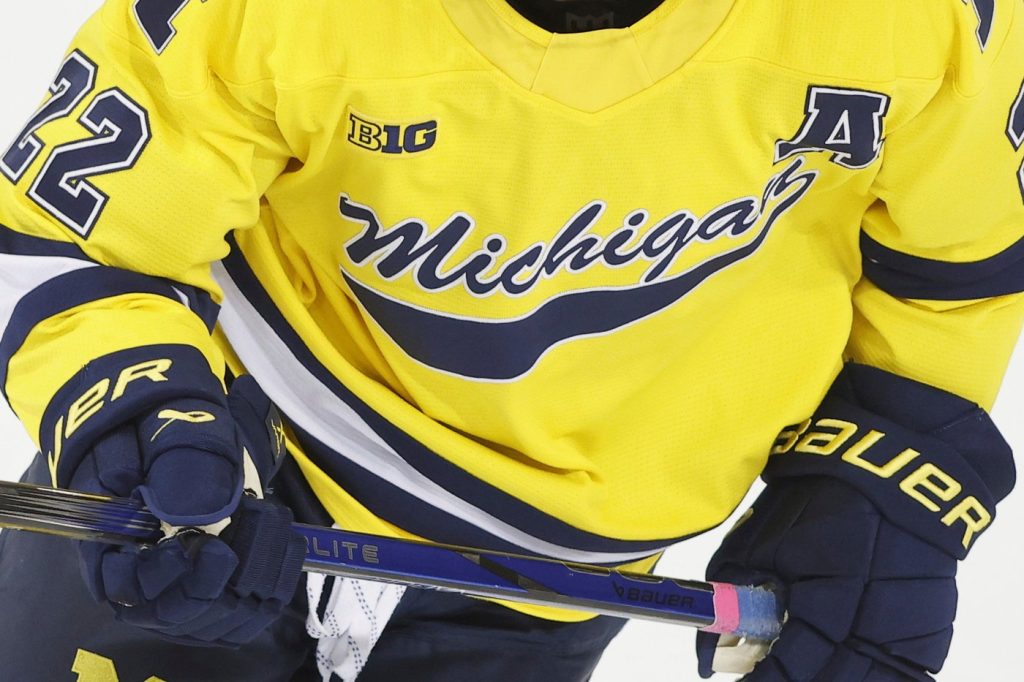Denise Ilitch, a regent of the University of Michigan, expressed strong support for the potential launch of a Division I women's hockey program at the Big Ten school. In a conversation with The Associated Press, she indicated that the momentum for initiating such a program is positive, suggesting that it is not a question of "if," but rather "when" it will happen.
Ilitch noted, “I think that the decision to have a DI team is positive, so that would be a yes. I think now, it’s a matter of how do we get there.” Several logistical and financial challenges remain, chiefly the decision on whether to construct a new facility that would house both the men’s and women’s teams, or to renovate the existing Yost Arena, which has served as the men’s program’s home for over a century.
Building a new facility is projected to cost around $300 million, while a feasibility study commissioned last year also identified the possibility of expanding Yost Arena for approximately $50 million. However, this expansion could complicate community access to ice-time and parking. Ilitch emphasized her eagerness to launch the women’s program and explore temporary off-campus venues to host the team in the meantime.
Ilitch, who is the daughter of Detroit Red Wings owner Marian Ilitch, stated that the support from the board and university president aligns with her vision for establishing a women's hockey program. She mentioned that while she does not wish to set a definitive timeline, she hopes to provide direction on the facility decision, whether it be Yost or a new arena, within the next few months.
The Yost Arena, which is over 100 years old, is deemed insufficient to accommodate two varsity hockey teams, prompting the ongoing discussions regarding a new facility or renovations. The CSA (Collegiate Sports Associates) study found the operational costs for a women’s hockey program could be around $4.1 million annually, but with potential for various partnerships, including naming rights, to mitigate financial losses.
Advocacy for a women's hockey team at Michigan is partly fueled by the growing interest in women's hockey in general; participation has surged by nearly 43% nationwide over the past decade. Ilitch's comments coincide with an increased focus on women's hockey, highlighted by the recent establishment of the six-team Professional Women's Hockey League (PWHL) that aims to bolster the sport’s profile.
The PWHL will also see future expansion, with Detroit being a candidate for new teams as the league seeks to capitalize on its status as “Hockeytown.” Players like Elle Hartje from New York, who has roots in Detroit, highlighted the irony of the city not having a college team, especially given its passion for the sport. Another player, Abby Roque, expressed that having a program in Michigan would inspire young girls to pursue hockey locally.
During the 2023-24 season, Michigan had 45 female athletes on women's college hockey rosters, ranking fourth in the U.S. for female hockey registrants, behind states like Minnesota, Massachusetts, and New York. Currently, the University of Michigan offers a women's club hockey team, which is guided by Jenna Trubiano, now in an advisory role dedicated to securing the DI women's program.
Trubiano noted that a significant number of Michigan-born players often leave the state to pursue their hockey careers, contributing to a talent drain in local youth hockey coaching. She attributed some momentum for the push towards a women's program to the Ohio State women’s hockey team winning two national championships, drawing attention to the absence of a comparable program at Michigan.
In summary, the dialogue surrounding the establishment of a Division I women’s hockey program at the University of Michigan showcases both the growing support and the challenges involved. As the university examines its options for facilities and funding, stakeholders remain optimistic about the future of women's hockey in the state and the potential positive impact on aspiring female athletes.










